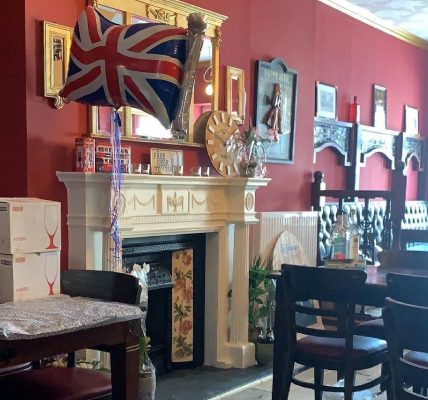Five bestselling authors explain why they switched from romantic fiction to thriller writing
Five bestselling authors explain why they switched from romantic fiction to thriller writing
Five top authors reveal why they switched from romantic fiction to thriller-writing. Hannah Stephenson reports.
Thrillers remain among the most popular genres in the world of books – and a clutch of famous women’s fiction writers have risked much to pursue their dream of penning a murder mystery, psychological thriller or domestic noir.
Mid-career, bestselling authors including whose tales of love, loss, romance and emotional heartache had already sold in their millions, risked alienating their loyal readers to write dark, twisty tales of sinister goings-on.
Here, five top novelists who’ve switched to thriller-writing explain the reasons behind their decision…
Jewell wrote female fiction for more than a decade, featuring romance, comedy and contemporary relationships in books including Ralph’s Party and Thirtynothing. Yet in recent years she has turned to dark psychological thrillers which have also become bestsellers, including The Family Upstairs and her most recent, Invisible Girl.
She’d wanted to incorporate darker themes in her female fiction for some time, she recalls. “I’d intended my first book, Ralph’s Party, to be a lot darker than it was, but the reader I had when I wrote it was very much cheerleading my characters into having a feelgood time.
“I started trying to feed the darker aspects into the other romantic comedies I wrote. They came out at a time when chick lit was the thing and they were very much marketed as lightweight romantic comedies, when actually, there are some really dark things going on in them – abortion, obsession, stalking, death and suicide.”
Yet her readership had reached its ceiling at this point, says Jewell. “There was this awful back-shadowing of ‘Lisa Jewell chick lit’ which was really hard to shake. Some people had grown out of chick lit and didn’t read me because they thought I wrote chick lit. That was a legacy I really had to shrug off.”
Moving into thriller writing wasn’t a conscious decision. The real switch happened by chance while writing The Third Wife, published in 2014, which she intended to be a family-based drama but ended up being more of a mystery. “It was set around the themes of a man who’s been married multiple times and the impact that has on the dynamics with his older children, younger children, ex-wives and new wife, and about halfway through I realised I was bored with him.
“So I added a prologue where his third wife gets thrown under the wheels of a night bus on Charing Cross Road and then had to rework the narrative.” She received positive feedback and reflects: “Once you’ve killed someone you can’t then take a step backwards away from it. You’ve crossed the Rubicon.”
Jewell’s latest thriller, The Night She Disappeared, is published on July 22 (Century, £14.99).
It was a conversation with film director Sam Mendes, at a film screening in 2010, about their love of Ian Fleming’s James Bond novels that sparked Tony Parsons’ desire to write a crime novel, he recalls. Yet it was a huge financial risk, says the novelist, who enjoyed runaway success with his novel Man And Boy and other tales of love, loss and relationships.
“When you are known for something else, crossing the floor is not simple or straightforward. Man And Boy was such a massive multi-million selling book that it clearly creates certain expectations with the industry, readers and yourself. Switching genres is not something that can be done lightly or easily.
“I discussed it with my agent and he said, ‘It means going right back to the start.’ He meant I would have to prove myself – write the thriller without a contract, find a publisher who was passionate about it, prove I could do it. Defy expectations. The world loves to stick us all in our little box.
“It meant cashing in my life savings – just under £200,000 – and living on that for two years while I wrote The Murder Bag, the first book in the Max Wolfe series.
“But it paid off – The Murder Bag sold in 24 hours, went to number one, the first Sunday Times number one I had had for 10 years.
“My most recent thriller, a standalone psychological thriller called Your Neighbour’s Wife, is the most successful thing I have done for 10 years. Are they better? I believe so, because you become a better writer as you get older.”
Your Neighbour’s Wife by Tony Parsons is available now (Century, £12.99).
Paula Hawkins found fame with The Girl On The Train, which was made into a hit film starring Emily Blunt. But she had spent years writing romantic novels before turning to thrillers.
“I started out writing fiction a slightly strange way, in that I was commissioned to write a romantic comedy: the publishers gave me an idea and a broad outline and I filled in the rest. I then wrote three other romantic novels under the same pseudonym, but I never truly felt at home in the genre.
“I’m not romantic and I’m not that funny… The novels kept getting darker and darker and it became clear to me that what I really wanted to do was write crime. As soon as I started writing The Girl On The Train it became clear to me I’d found my niche; I felt much more at home with murder than I had with love.”
Hawkins’ new novel A Slow Fire Burning will be published on August 31 (Doubleday, £20).
The covers of Adele Park’s earlier books including her first, Playing Away, featured soft pink or purple backgrounds, with often a pair of sexy legs in stilettos in the fore. And now she’s become a star of the domestic noir, her thrillers frequently making the top 10 bestseller list.
She says her thrillers have been more successful than her romantic fiction, that her previous readers have stuck with her, and that she’s opened up her market to men, plus the American market has been bigger.
“I like the fun of playing with bad guys and girls, and enjoying the stretch of looking at a very different dark underbelly of the world I didn’t get to access when I was writing romances,” she says.
She had already taken a break from romantic fiction to write two historical novels before turning to thriller-writing. “I became less interested in pinning my books around a romance.”
She intends to continue with thrillers for the foreseeable future. “I just like the twists, the reveals and the intellectual play you can have in a thriller.”
Parks’ new novel Both Of You is published on May 27 (HQ, £14.99)
More than 20 years ago, Joanne Harris found fame with Chocolat, her mesmerising tale of enigmatic chocolatier Vianne Rocher, made into a film with Juliette Binoche and Alfred Molina.
She has since written a number of psychological thrillers but says it wasn’t that much of a transition for her. “I’ve realised that my readers fall into distinct categories. Some will only read the thrillers, some will only read the Chocolat books, some will only read the fantasy books.”
Indeed, her books are wide-ranging, covering aspects of magical realism, suspense, historical fiction, mythology and fantasy. There’s no pigeonholing this author.
Her new thriller, A Narrow Door, is published on August 4 (Orion, £20).










